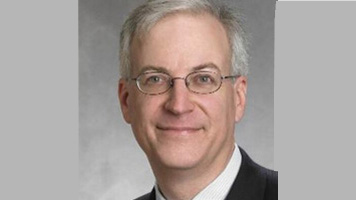Jessell | Sook & Nexstar Sound The Right Note For Tribune


Harry Jessell
On the call with analysts that followed Nexstar Media’s announcement last Monday that it had won the bidding for Tribune at $4.1 billion, CEO Perry Sook wrapped things up by recalling some Grateful Dead lyrics: “What a long strange trip it’s been.”
It wasn’t entirely clear what he meant. The trip could have a been a reference to his persistence in pursuing Tribune or it could have been a comment on how far he has come since Nexstar was founded 22 years ago with the purchase of WYOU Wilkes-Barre/Scranton, Pa.
In any event, if he closes on Tribune as he hopes by the end of the third quarter next year, Nexstar will be the largest station group in the land, even after it makes a bunch of divestitures to appease FCC and Justice Department regulators.
I can’t say exactly how large because I don’t know about those divestitures. But the pre-divestitures numbers give you an idea of its massive scale — 216 stations in 118 markets with $4.6 billion in revenue and $1.7 billion in adjusted EBITDA.
Sook’s opportunity to rise to the top came after David Smith at Sinclair botched his opportunity.
Smith cut a deal to acquire Tribune Media in the spring of 2017, but he jerked around the regulators so much in his effort to game the ownership rules to his advantage that they threw him out the door last summer and, for good measure, effectively put on him on indefinite probation. Right now, he can’t buy anything with a broadcast license attached.
Sook seized the opportunity, eventually agreeing to pay $200 million more than Sinclair had. Sook explained to the analysts that he was paying more because the company was worth more than it was a year-and-a-half ago. In the interim, he said, management had turned around Tribune’s WGN America, taking it from negative cash flow to nine-digit profitability.
But another factor in the price may have been competition. Sook had to outbid some deep-pocketed private equity firms — notably Apollo Global Management — that emerged as his most determined rival.
Sook had a marked advantage over the private equity players. Because of its “after-acquired” retrans contracts with MVPDs, he could squeeze an extra $75 million out of the Tribune stations in retrans. That’s on top of another $85 million in year-one synergies that private equity firms might or might not have been able to realize.
Sook has some hurdles to surmount to close his deal. Nexstar and Tribune have overlapping stations in 15 markets, but only two have combinations are clearly allowable under the rules. That means Sook will have to spin off stations in 13 markets. He put a price tag of around $1 billion on the spinoffs.
Sook also told the analysts that he will have to make “some adjustments” to keep below the FCC rule capping station groups to coverage of no more than 39% of TV homes with the UHF discount.
“Some adjustments” may be an understatement.
Neither Sook nor CFO Tom Carter, who was also on the call, elaborated on the national cap. According to my back-of-the-envelop calculation, the deal puts Nexstar a few percentage points above the cap even with the UHF discount, the regulatory artifact that counts only half the coverage of UHF stations in calculating coverage.
To shed those few points and get beneath the cap, I believe Sook is going to have to exit some markets — that is, divest all its stations in some markets to bona fide third parties.
I say this in the belief that he will not do what Smith did — try to spin the stations off to closely related companies. Such insider dealing is what got Smith into trouble with the FCC and ultimately sunk his deal.
So, for instance, Sook could sell the two stations in the Washington market, Nexstar’s WDVM (independent) and Tribune’s WDCW (CW). That would chip 2.5% off his coverage total and bring him near the cap with no loss of Big Four network affiliates.
I don’t know what Sook’s strategic vision for Nexstar-Tribune is, but I assume that it involves hanging on to the Tribune’s large-market stations even if they don’t have Big Four credentials. If he is serious about datacasting or other national services, he will need those stations.
Fox could solve Sook’s national cap problem. Back when Sinclair was the buyer, Fox had a deal to buy Tribune’s Fox affiliates in Seattle, Miami, Denver, Cleveland, San Diego, Sacramento and Salt Lake City for $910 million. That deal, of course, fizzled along with Sinclair-Tribune.
Fox had two reasons for making the deal:
- It likes stations in NFL markets because they help monetize its costly NFL TV rights and five of the seven stations are in NFL markets.
- It didn’t like the idea of Sinclair owning as many Fox affiliates as it would have if it merged with Tribune.
The first of those reasons still holds. So, Fox could swoop in and buy the same seven stations. If it does, it will shave several points off Nexstar-Tribune’s combined coverage and obviate all national cap concerns.
I’m getting conflicting signals on whether Fox is still interested in the stations. On the call, Sook said that he has had no conversation about selling any stations to Fox, although several other groups had expressed interest in the overlap spinoffs.
In any event, we will soon know what Sook has in mind. Last week, he promised to present the FCC with a “comprehensive” divestiture plan, and I expect that will arrive at the agency within the next few days.
Also overshadowing the deal is the Justice Department’s on-going investigation into the sharing of spot advertising pacing information among station groups and their rep firms. The investigation was an outgrowth of Justice’s review of the Sinclair-Tribune merger.
Last month, Justice settled with Tribune, Sinclair and a handful of smaller groups that had been targeted in the probe. The groups all signed consent decrees that will regulate their behavior for the next several years.
I understand that Nexstar is among some other companies that have been ensnared in the investigation. If so, it will have to negotiate a consent decree just as the others did to clear the way for the merger.
Sook’s final problem is political. We talked about Nexstar-Tribune’s coverage with the UHF discount being near the cap. But its actual coverage (even with the necessary market exits to comply with the cap) will be around 65%-70%.
That’s as big as Sinclair-Tribune would have been and thus it will trigger considerable political blowback, especially now that the Democrats are back in charge in the House. Opposition to station consolidation is embedded in the party orthodoxy.
But Sook has one big thing going for him in Washington and that is that he is not David Smith.
Unlike Smith, he has no political agenda. Unlike Smith, he does not impose right-wing commentary and documentaries on his stations. Unlike Smith, he knows how to behave in Washington. Unlike Smith, he tries to play the news as straight as he can just as he was taught as a journalism student at Ohio University.
Despite all the shots I have taken at Smith for his top-down meddling in news and for souring the regulatory climate in Washington, I liked the idea of his owning Tribune.
Offsetting his negatives is true entrepreneurial grit and imagination. If ATSC 3.0 has any real promise, I believe that Smith has the best chance of realizing it. He has invested heavily in it for years. He has been the leader.
If he had closed on Tribune, he would have used his magnified footprint to roll out ATSC 3.0-based datacasting services and perhaps created that new revenue stream the industry needs.
Smith also saw the merger as a springboard into national programming.
However, that being said, I think I like the idea of Sook owning Tribune even more.
Compared to Smith, he is a Boy Scout. He can better make the case in Washington that mega-station groups are good for the country in that they will help preserve the medium and the indispensable local news services it provides.
Sook will be a better steward of Tribune’s news operations, and it’s not just because of his down-the-middle approach to news. We ran a story last week about how Hurricane Michael smashed into Nexstar’s WMBB in Panama City, Fla., last month, knocking it off the air for 10 days.
Within days of the disaster, Sook turned up at the station reassuring employees that he was committed to rebuilding and that their jobs were secure. It was exactly the right thing to do.
I would also note that Sook owning Tribune will be almost as good for ATSC 3.0 datacasting as Smith owning it. Sook is a partner with Smith in Spectrum Co., a joint venture devoted to developing datacasting services and aggregating broadcast spectrum for them. If Smith had won Tribune, he would have supplied the necessary major market spectrum to the venture. Now, Sook can.
Years ago, Sook predicted that broadcasting would boil down to a half dozen or so mega groups and that Nexstar would be one of them.
That predication is looking better all the time. All Sook has to do is keep truckin’.
Harry A. Jessell is editor of TVNewsCheck. He can be contacted at 973-701-1067 or here.
































Comments (2)
HopeUMakeit says:
December 10, 2018 at 9:01 am
squeeze an extra $75 million out of the Tribune stations in retrans. That’s on top of another $85 million in year-one synergies that private equity firms might or might not have been able to realize.
this is why democrats have a negative opinion of these mega mergers. Cable Subscribers have to folk over another 75 mil and 85 million in consolidation ( layoffs). I was reading to hear a benefit to a viewer. still waiting.
[email protected] says:
December 11, 2018 at 12:25 am
Wrong like always since mega mergers are a good thing for business something that you don’t get Hopeumakeit.